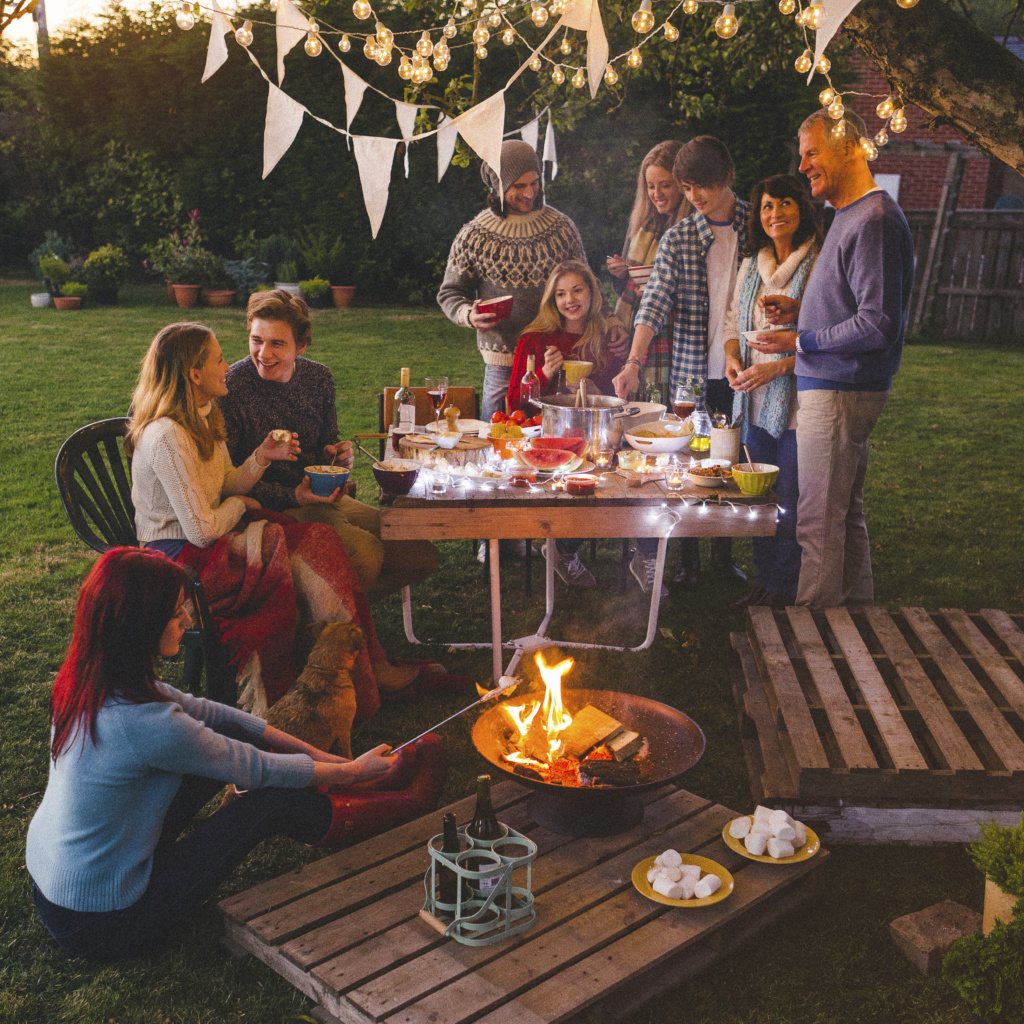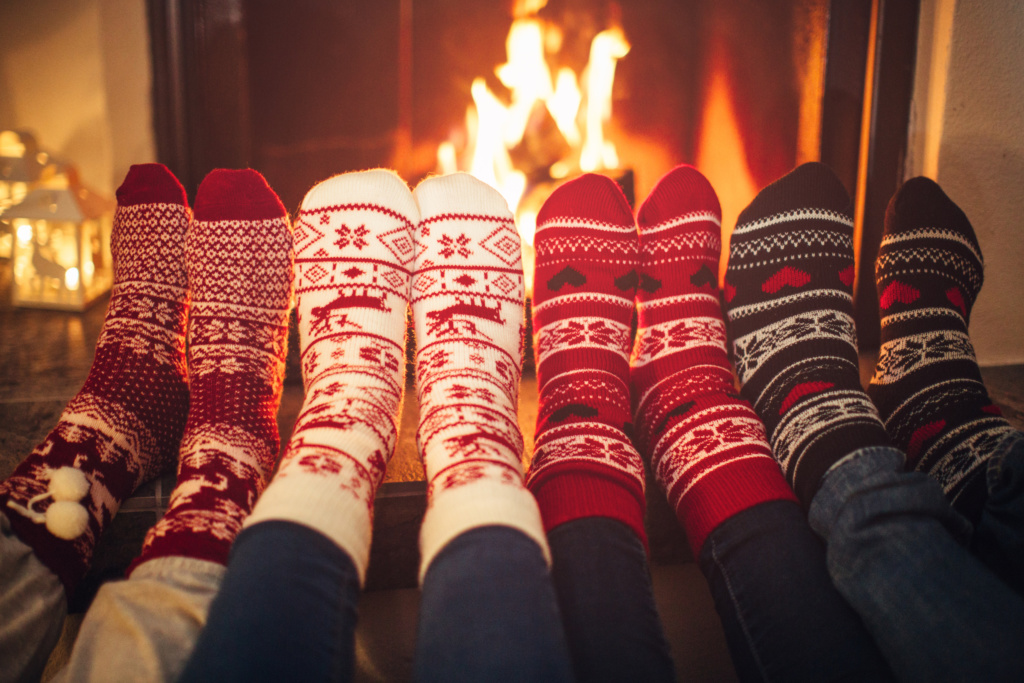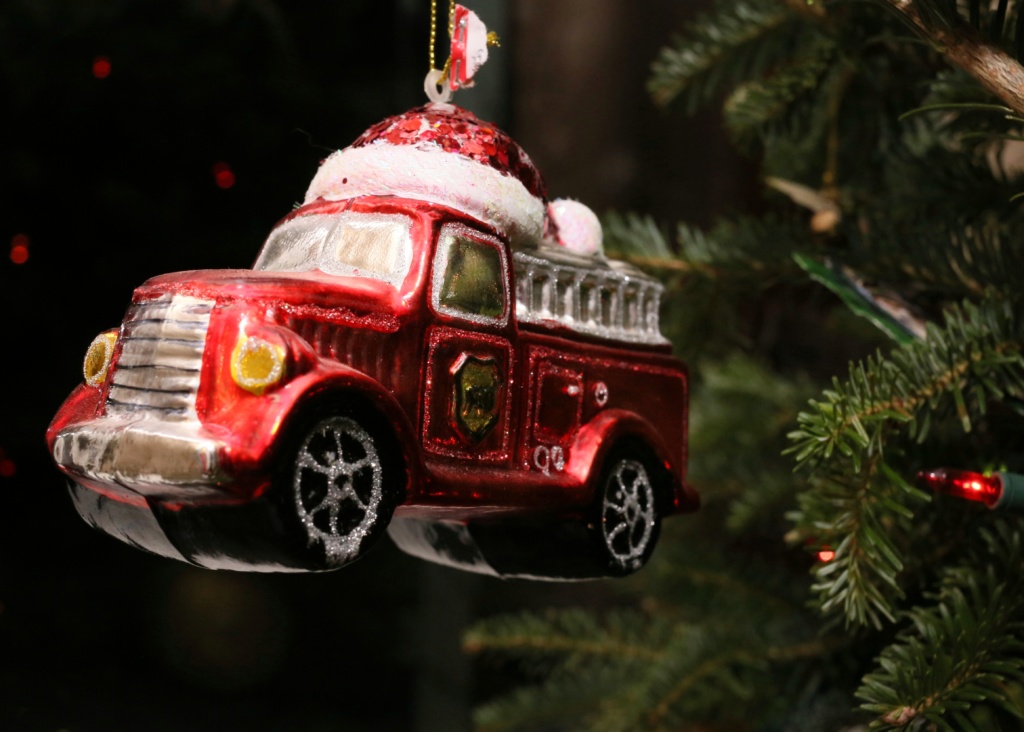Winter Safety: Tips From Your Local Fire Department
Article By | College Station Fire Department
The winter months are a great time of year! A reprieve from the Texas heat is a welcome change, and for some lucky kids and adults, snow may blanket the ground and provide a place for snowmen to be born. With all this excitement for the change in season, it is important to stay safe, and be prepared, for the cold weather.
![]() The onset of cold weather is a great opportunity to review your fire risk. Ensuring your smoke alarms are working properly, and having fire extinguishers available in your home, are good safety ideas no matter what time of year! Test your smoke alarm monthly, replace the batteries every year, and replace the smoke alarm every 10 years. If possible, purchase smoke alarms that also have integrated carbon monoxide detectors. Often called the invisible killer, carbon monoxide is an odorless, colorless gas created when fuels such as gasoline, wood, coal, propane, etc. do not burn completely. In the home, heating and cooking equipment that burn fuel are potential sources of carbon monoxide. Carbon monoxide incidents are more common during the winter months, and in residential properties.
The onset of cold weather is a great opportunity to review your fire risk. Ensuring your smoke alarms are working properly, and having fire extinguishers available in your home, are good safety ideas no matter what time of year! Test your smoke alarm monthly, replace the batteries every year, and replace the smoke alarm every 10 years. If possible, purchase smoke alarms that also have integrated carbon monoxide detectors. Often called the invisible killer, carbon monoxide is an odorless, colorless gas created when fuels such as gasoline, wood, coal, propane, etc. do not burn completely. In the home, heating and cooking equipment that burn fuel are potential sources of carbon monoxide. Carbon monoxide incidents are more common during the winter months, and in residential properties.
![]() Heating sources should also be considered for fire risk. If you plan on using your fireplace, for decoration or warmth, have it professionally inspected. Also, be sure to keep flammable items, such as rugs or furniture, at least 3 feet away from space heaters and fireplaces. These items can ignite even if they are not directly touching a flame.
Heating sources should also be considered for fire risk. If you plan on using your fireplace, for decoration or warmth, have it professionally inspected. Also, be sure to keep flammable items, such as rugs or furniture, at least 3 feet away from space heaters and fireplaces. These items can ignite even if they are not directly touching a flame.
![]() Electrical sources should be part of your safety checks. Portable electric generators should be kept outside and not in enclosed spaces. Many homeowners are unaware that the improper use of portable generators can be risky. The most common dangers associated with portable generators are carbon monoxide (CO) poisoning, electrical shock or electrocution, and fire hazards.
Electrical sources should be part of your safety checks. Portable electric generators should be kept outside and not in enclosed spaces. Many homeowners are unaware that the improper use of portable generators can be risky. The most common dangers associated with portable generators are carbon monoxide (CO) poisoning, electrical shock or electrocution, and fire hazards.
![]()
 Make sure you’re covered well enough to keep warm. Older persons often have a lower core body temperature, have less muscle to generate the heat needed to raise their body temperature, and will have problems maintaining this temperature due to medical problems and medication effects. It’s not unusual, even in warmer months, for older persons to complain that they feel cold, even when the thermostat is raised to a higher temperature. The best solution – and most practical – is to make sure you wear clothes that provide appropriate insulation to protect you from the cold weather and to help keep heat closer to your body. Wearing clothes in layers allows you to shed, or put clothes on, as you move in and out of the cold weather.
Make sure you’re covered well enough to keep warm. Older persons often have a lower core body temperature, have less muscle to generate the heat needed to raise their body temperature, and will have problems maintaining this temperature due to medical problems and medication effects. It’s not unusual, even in warmer months, for older persons to complain that they feel cold, even when the thermostat is raised to a higher temperature. The best solution – and most practical – is to make sure you wear clothes that provide appropriate insulation to protect you from the cold weather and to help keep heat closer to your body. Wearing clothes in layers allows you to shed, or put clothes on, as you move in and out of the cold weather.
![]() Many people have older friends, family and neighbors who spend the winters living alone. It’s worthwhile to check up on them when the weather is inclement and the driveways and walkways need to be cleared. Keeping track of your older family members’ or neighbors’ whereabouts and needs can make them feel more connected to the community and can help ensure that their surroundings remain clear and safe without taking the risk of clearing the areas themselves. It is the good neighbor and the caring family member who offer up assistance in appropriate times, even if it’s not needed.
Many people have older friends, family and neighbors who spend the winters living alone. It’s worthwhile to check up on them when the weather is inclement and the driveways and walkways need to be cleared. Keeping track of your older family members’ or neighbors’ whereabouts and needs can make them feel more connected to the community and can help ensure that their surroundings remain clear and safe without taking the risk of clearing the areas themselves. It is the good neighbor and the caring family member who offer up assistance in appropriate times, even if it’s not needed.
![]() Finally, with cold weather approaching it also is a time to celebrate the winter holidays. Cooking fires are more prevalent around the holiday seasons with families gathering for holiday meals. Remember to never leave items cooking unattended, and have fire extinguishers strategically played around the house — and make sure there is on in the kitchen. Call 911 if you have a fire, even if you extinguish it. Smoke can still be in the house, and the fire department can check to make sure fire didn’t spread to other appliances or areas of the house.
Finally, with cold weather approaching it also is a time to celebrate the winter holidays. Cooking fires are more prevalent around the holiday seasons with families gathering for holiday meals. Remember to never leave items cooking unattended, and have fire extinguishers strategically played around the house — and make sure there is on in the kitchen. Call 911 if you have a fire, even if you extinguish it. Smoke can still be in the house, and the fire department can check to make sure fire didn’t spread to other appliances or areas of the house.
From all of us at College Station Fire Department, we hope you have a warm, safe, and happy winter season!

